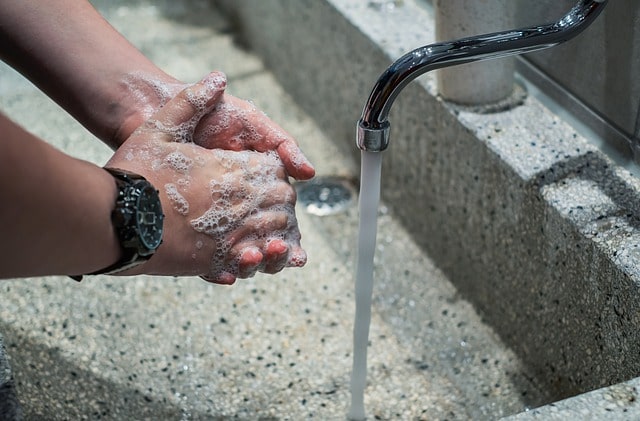

The COVID-19 pandemic has kept us in a state of lockdown for over two months. This has had a huge impact on every aspect of our lives, from confinement indoors to closed schools, offices and marketplaces.
This time has been challenging for all of us, both physically and psychologically. In a society that thrives on shared experiences, festivities and togetherness such as ours, the lockdown has not been easy to observe. Children have especially had difficulties in coping with the sense of insecurity, staying away from friends and in many cases, being vulnerable to violence, hunger and sickness.
This pandemic of global dimensions has left its impact on our daily habits as well. Social distancing is now a buzzword around the world, as is the importance of regular handwashing with soap and the practice of respiratory hygiene. As someone whose work focuses on the improvement of health and hygiene in the community, I appreciate the widespread adoption of better handwashing and hygiene habits.
WHO guidelines clearly state the role played by handwashing with soap, cleaning hands with sanitizer, maintaining social distancing and wearing masks in protecting us from contracting the disease. While infections continue to be reported every day, it is a fact that these healthy practices have prevented an even faster spread of COVID-19.
As time passes, we see that lockdowns are eased to allow a number of activities, with precautions, such as office openings with low attendance, travel via road, rail and air as well as the opening up of some marketplaces. In this context, it is important to remember that while restrictions have reduced, the importance of protecting ourselves from COVID-19 remains the same.
These changes must not make us believe that the old ‘normal’ is back. COVID-19 is still a threat and until a cure or vaccine is developed, it is important to flatten the curve so that our health personnel are not overwhelmed as they work round the clock to heal the infected.
Therefore, I must stress again that we must continue with the precautions that we have observed from the beginning. We must avoid public places unless absolutely necessary. We must continue with limited movement for groceries, and buy for a week, a fortnight or more. Visits to the markets must be planned in a manner where crowding can be avoided by maintaining a distance of 6 feet with others.
We must continue to wear face masks and if we rejoin our offices, we must ensure that appropriate distances are maintained and government guidelines are followed. Practices like spitting in public must be discouraged. Active involvement by the general public will further help authorities in containing the COVID-19 pandemic.
Another important thing I want to address is social stigma. A crisis such as this pandemic breeds fears, anxiety and negativity. Often these feelings manifest in the form of discrimination and disrespect against people of certain communities or geographies, migrant workers and even against health workers and volunteers who are society’s true heroes at this time.
We must remember that COVID-19 does not differentiate between who it infects. Discrimination and violence are unacceptable on grounds of identity, and especially against the same health workers who are the ones risking their lives to keep us safe.
It is critical that we are supportive and protective of the people who are infected and of the migrants who have journeyed long in this harsh summer to find the safety of home. Even more so, let us respect and support the doctors, nurses, ANMs, ASHAs, sanitation workers as well as social volunteers who are treating, feeding and helping people at great risk to themselves. When we protect ourselves, we make their jobs easier.
These past weeks have taught us to live a completely different life with a new set of challenges. Let us stay safe so that we can all emerge secure on the other side.
(Writer is Chief Field Office, UNICEF Jharkhand)